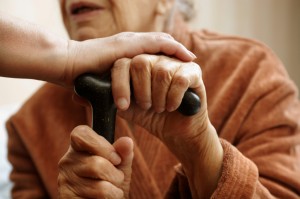Perissinotto says medical professionals also need to put more emphasis on the role of psychosocial distress on health. “We cannot continue to ignore the psychosocial distress that our patients are experiencing,” Perissinotto said. “It is, in fact, just as important as traditional medical risk factors.”
According to Perissinotto, medical schools currently emphasize the role of traditional medical risk factors such high blood pressure, cholesterol and obesity and pay less attention to factors such as social support and loneliness. “There needs to be a slight shift where we don’t ignore the traditional medical risk factors but we also incorporate things like loneliness into the general assessment of our patients,” Perissinotto urged.
On a positive note, Perissinotto does acknowledge the existence of health care programs that currently screen for loneliness among patients such as the Bay Area’s Institute on Aging. The institute’s Friendship Line is a phone service that reaches out to elderly individuals and offers a variety of services, including emotional support.
Karyn Skultety, the Director of Clinical and Community Services at the Institute on Aging and another guest on KQED's Forum, cautions the idea of relying on screens alone. Screens are useful and helpful but should not replace the ability to ask clients questions, she said. “Nothing substitutes real good conversations with someone.”
The two guests also clarified a common misconception over the definition of loneliness itself. “Loneliness is the subjective feeling of isolation, not belonging, or lacking companionship,” said Perissinotto. About two-thirds of her study’s participants who were classified as lonely were married or living with a partner. Skultety added that loneliness is not based on the quantity of friendships, but on the quality and type of friendships.
Skultety added that society does not view careers involving care for the elderly as rewarding. She said this viewpoint is responsible for the current shortage of medical professionals available to work with older adults. “We haven’t done enough in terms of our spending and choices in our health care system,” she said.
“In our medical schools across the country, geriatrics education is not a focal point. It is not viewed as important,” Perissinotto added. “It is a huge detriment to our future physicians and adults in this country and abroad.”
